The HSV2 virus, also known as Herpes Simplex Virus 2, is a common sexually transmitted infection that affects millions of people worldwide. It is important to understand the virus, its symptoms, transmission methods, and available treatment options to empower individuals with knowledge and promote responsible sexual health practices.
HSV2 is a viral infection that primarily affects the genital area. It is transmitted through sexual contact, including vaginal, anal, and oral sex. Once infected, the virus remains in the body for life, although symptoms may come and go. It is important to note that HSV2 is different from HSV1, which primarily causes oral herpes.
Table of Contents
ToggleSymptoms of HSV2 Infection

The symptoms of HSV2 infection can vary from person to person. Some individuals may experience mild symptoms or no symptoms at all, while others may have more severe outbreaks. Common symptoms of HSV2 infection include:
- Genital Sores: The most recognizable symptom of HSV2 infection is the appearance of painful blisters or sores on the genitals or surrounding areas. These sores can be itchy, tender, and may take several weeks to heal.
- Flu-like Symptoms: Some individuals may experience flu-like symptoms during the initial outbreak, including fever, headache, muscle aches, and swollen lymph nodes.
- Nerve Pain: HSV2 infection can cause nerve pain, known as neuralgia, which can be localized or spread throughout the lower back, buttocks, and thighs.
It is important to seek medical attention if you suspect you have been infected with HSV2. A healthcare provider can diagnose the infection through a physical examination and laboratory tests.
How is HSV2 Virus Transmitted?
HSV2 is primarily transmitted through sexual contact, but it can also be spread through other means. The most common modes of transmission include:
- Sexual Contact: HSV2 is most commonly spread through sexual contact, including vaginal, anal, and oral sex. The virus can be transmitted even if there are no visible sores or symptoms present.
- Skin-to-Skin Contact: The virus can also be transmitted through skin-to-skin contact with an infected area. This can occur during sexual activities or through other forms of close physical contact.
- Vertical Transmission: In rare cases, HSV2 can be transmitted from an infected mother to her newborn during childbirth. This is known as vertical transmission.
It is important to practice safe sex and take precautions to reduce the risk of transmission. The use of condoms, dental dams, and regular testing can help prevent the spread of HSV2.
Testing for HSV2
If you suspect you have been exposed to HSV2 or are experiencing symptoms, it is important to get tested. There are several testing methods available, including:
- Blood Tests: Blood tests can detect the presence of HSV2 antibodies, which indicate a past or current infection. These tests are usually done when there are no visible symptoms or during recurrent outbreaks.
- Swab Tests: Swab tests involve taking a sample from a sore or blister and testing it for the presence of the virus. These tests are most accurate when done during an active outbreak.
- PCR Tests: Polymerase Chain Reaction (PCR) tests can detect the genetic material of the HSV2 virus. These tests are highly accurate and can be done using a swab sample or urine sample.
It is important to remember that testing for HSV2 is not typically included in routine STD screenings, so it is necessary to specifically request it from your healthcare provider.
Treatment Options for HSV2 Virus

While there is no cure for HSV2, there are treatment options available to manage symptoms and reduce the frequency of outbreaks. The primary treatment options include:
- Antiviral Medications: Antiviral medications, such as acyclovir, valacyclovir, and famciclovir, can help reduce the severity and duration of outbreaks. These medications can also be taken daily to suppress the virus and decrease the risk of transmission.
- Pain Relief: Over-the-counter pain relievers, such as ibuprofen or acetaminophen, can help alleviate the discomfort associated with HSV2 outbreaks.
- Topical Creams: Topical creams, containing anesthetics or antiviral agents, can be applied to the affected area to provide relief and promote healing.
It is important to consult with a healthcare provider to determine the most appropriate treatment plan based on individual circumstances.
Managing and Preventing HSV2 Virus Outbreaks
Managing and preventing HSV2 outbreaks is an essential part of living with the virus. Some strategies to consider include:
- Stress Reduction: Stress can trigger HSV2 outbreaks, so finding effective stress management techniques, such as exercise, meditation, or therapy, can help reduce the frequency of outbreaks.
- Healthy Lifestyle: Maintaining a healthy lifestyle, including regular exercise, balanced diet, and adequate sleep, can support the immune system and minimize the occurrence of outbreaks.
- Avoiding Triggers: Identifying and avoiding triggers, such as certain foods, excessive alcohol consumption, or prolonged sun exposure, can help prevent outbreaks.
- Safe Sexual Practices: Practicing safe sex, including the use of condoms and dental dams, can reduce the risk of transmission to sexual partners.
By adopting these strategies, individuals can take an active role in managing their HSV2 outbreaks and promoting overall well-being.
Living with HSV2: Coping Strategies and Emotional Support
Receiving a diagnosis of HSV2 can be emotionally challenging, and it is important to seek support and develop coping strategies. Some suggestions include:
- Education: Educating oneself about HSV2, its transmission, and treatment options can help alleviate anxiety and provide a sense of control.
- Support Groups: Joining support groups or seeking counseling can provide a safe space to share experiences, seek advice, and receive emotional support from others living with HSV2.
- Open Communication: Communicating openly and honestly with sexual partners about HSV2 can help build trust and reduce the risk of transmission. It is important to disclose the infection before engaging in sexual activities.
Remember, having HSV2 does not define an individual’s worth or ability to have fulfilling relationships. With the right support and understanding, it is possible to live a happy and healthy life with HSV2.
HSV2 and Relationships: Disclosure and Communication
When entering into new relationships or disclosing HSV2 status to a current partner, open and honest communication is crucial. Some important points to consider include:
- Timing: It is recommended to disclose HSV2 status before engaging in sexual activities. This allows the partner to make an informed decision about their own sexual health.
- Providing Information: Sharing accurate information about HSV2, including transmission risks, prevention methods, and treatment options, can help educate partners and alleviate concerns.
- Addressing Concerns: Be prepared to address any concerns or questions your partner may have. Providing reassurance and offering to accompany them to healthcare appointments can help build trust and foster understanding.
Remember, each individual has the right to make their own decisions about sexual health. Honesty and open communication can help navigate these conversations and build strong, supportive relationships.
HSV2 Prevention Methods
Preventing the transmission of HSV2 is essential for individuals living with the virus and their sexual partners. Some prevention methods to consider include:
- Safe Sexual Practices: Using condoms or dental dams consistently and correctly during sexual activities can significantly reduce the risk of transmission.
- Regular Testing: Regular testing for HSV2 and other sexually transmitted infections can help identify and address any infections early on.
- Suppressive Therapy: For individuals with recurrent outbreaks, taking antiviral medications daily can help reduce the risk of transmission to sexual partners.
- Avoiding Sexual Contact during Outbreaks: Refraining from sexual activities during outbreaks, when the virus is most contagious, can help prevent transmission.
By implementing these prevention methods, individuals can reduce the risk of transmitting HSV2 to their partners and promote responsible sexual health practices.
FAQ: Understanding the HSV2 Virus
What is HSV2?
HSV2 stands for Herpes Simplex Virus Type 2. It is a sexually transmitted virus that primarily affects the genital and anal areas, leading to genital herpes.
What are the symptoms of HSV2 infection?
Common symptoms include painful genital sores, itching, and a burning sensation. Some people may experience flu-like symptoms during their first outbreak.
How is HSV2 transmitted?
HSV2 is typically transmitted through sexual contact, including vaginal, anal, or oral sex. It can also be spread through skin-to-skin contact in the genital area, even without visible sores.
Can HSV2 be transmitted when there are no visible symptoms?
Yes, HSV2 can be spread even when there are no visible sores. This is known as asymptomatic shedding, and it makes safe sexual practices crucial for preventing transmission.
Is there a cure for HSV2?
Currently, there is no cure for HSV2. However, antiviral medications can help manage symptoms, reduce outbreaks, and lower the risk of transmission.
How can I reduce the risk of HSV2 infection?
To reduce the risk of HSV2 infection:
- Practice safe sex, including using condoms and dental dams.
- Limit your number of sexual partners.
- Be open and honest about your sexual health with your partner.
- If you have HSV2, take antiviral medications as prescribed by a healthcare professional.
Can HSV2 be passed from a mother to her baby during childbirth?
Yes, HSV2 can be passed from a mother to her baby during childbirth, but the risk can be significantly reduced with medical guidance and interventions.
Can HSV2 be managed with lifestyle changes?
While lifestyle changes alone cannot cure HSV2, they can help manage outbreaks. This includes managing stress, maintaining a healthy diet, and getting enough sleep.
Is there a vaccine for HSV2?
Currently, there is no approved vaccine for HSV2, but research is ongoing to develop one.
What should I do if I suspect I have HSV2?
If you suspect you have HSV2 or experience symptoms, it’s essential to seek medical advice. A healthcare professional can diagnose the condition and recommend appropriate treatment options.
Can HSV2 affect my emotional well-being?
Yes, a diagnosis of HSV2 can impact your emotional well-being. It’s essential to seek support from healthcare professionals, counselors, or support groups to address any emotional concerns.
How common is HSV2?
HSV2 is relatively common, with millions of people affected worldwide. Awareness, education, and safe sexual practices are crucial for prevention and management.
Can HSV2 be transmitted through kissing or sharing utensils?
HSV2 is primarily a genital herpes virus and is unlikely to be transmitted through kissing or sharing utensils. However, HSV1, a related herpes virus, can cause oral herpes and may be transmitted through oral contact or sharing items like utensils.
Can you have a healthy sex life with HSV2?
Yes, many individuals with HSV2 have healthy and fulfilling sex lives. Open communication, safe sex practices, and proper management can help maintain a positive and intimate relationship.
Conclusion: Empowering Individuals with Knowledge about HSV2
Understanding the HSV2 virus, its symptoms, transmission methods, and available treatment options is essential for individuals living with the infection. By empowering individuals with knowledge, we can promote responsible sexual health practices, reduce the stigma surrounding HSV2, and support those affected in living fulfilling lives.
Remember, it is important to seek medical advice and support if you suspect you have been infected with HSV2. With proper care, treatment, and open communication, it is possible to manage HSV2 and maintain healthy relationships.


